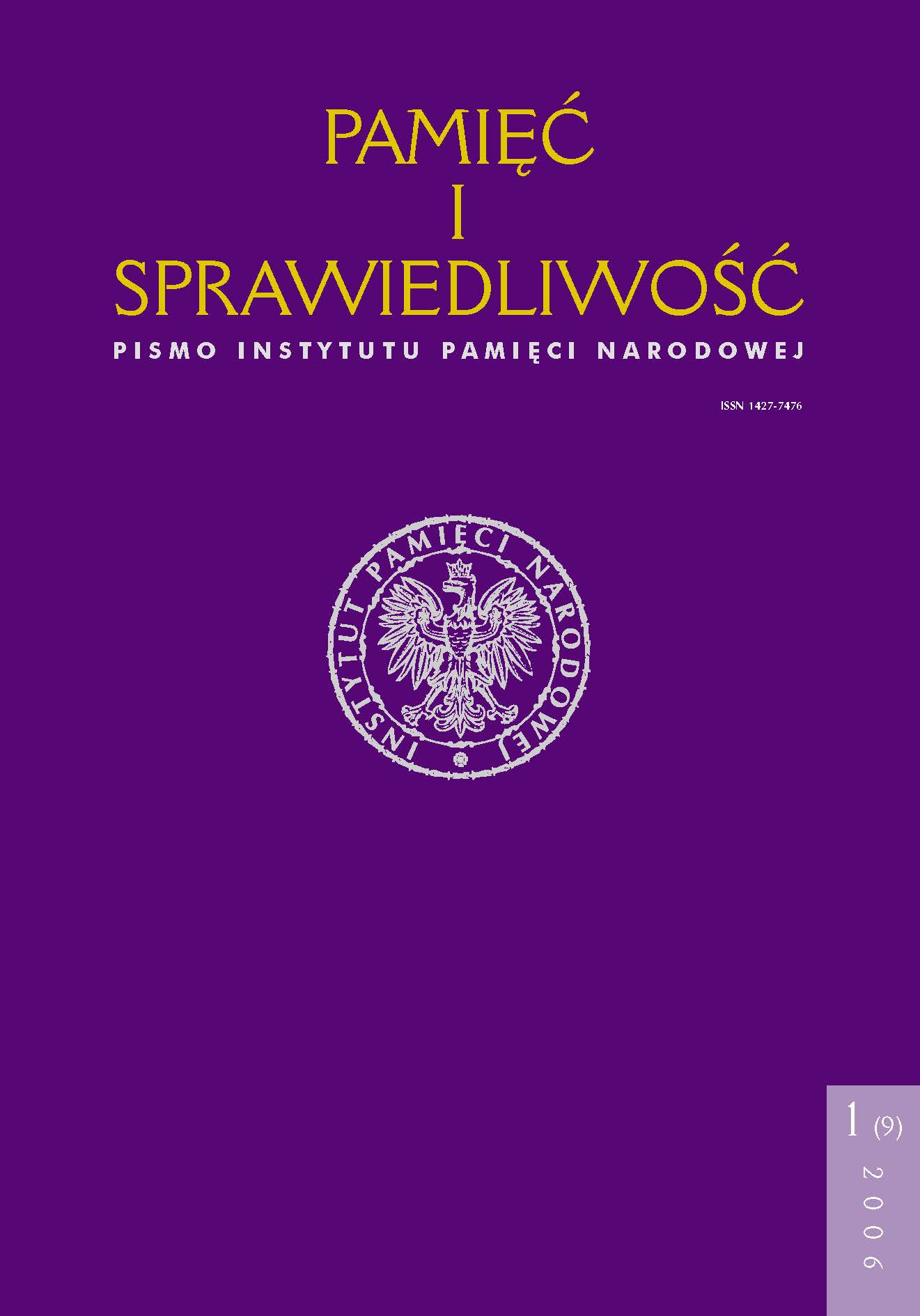The Stasi operational groups in Eastern block countries
Remembrance and Justice, Vol. 9 No. 1 (2006), pages: 43-61
Publication date: 2006-06-30
Abstract
The main task of operational groups of GDR Ministry of Public Security in Eastern block countries was controlling GDR citizens who stayed there for long or short periods. In countries to which people often went for holidays – like Hungary, Bulgaria or Czechoslovakia this usually meant preventing to escaping to West Germany. The control system
engaged not only operational groups, but the whole Ministry of Security which created a sophisticated system of secret agents in all countries of the block. The system was linked also to state institutions which were responsible for sending staff and tourists abroad.
The situation of an operational group in a country depended on its relationships with GDR. While Bulgaria, Hungary and Czechoslovakia usually eagerly agreed for cooperation and provided help of their security services, Poland agreed for creating “Warszawa” operational
group only in September 1980. The group became a center for enrolling and supervising agents and informers in the main environments in Poland. The control of GDR citizens had a little meaning in this case, a much more important thing was using all unofficial and official means of gathering information about Polish domestic situation, as well as cooperation with Polish security services on Polish opposition and members of secret services of western countries. When the perestroika began, the Soviet Union itself became an unreliable link for Germany and the operational group in Warsaw took the role of reporter informing of inner relationships and, as operational groups in the countries of
people’s democracy it became the chronicler of its departing from the communist system.
Most read articles by the same author(s)
- Ilko-Sascha Kowalczuk, Jolanta Żukowska, From the Failed Revolution to Riot-Prevention. The SED-Dictatorship from 1953 to 1961 , Remembrance and Justice: Vol. 11 No. 1 (2007)
 Język Polski
Język Polski
 English
English
 Deutsch
Deutsch
 Français (France)
Français (France)
 Italiano
Italiano
 Русский
Русский


 PDF (Język Polski)
PDF (Język Polski)
